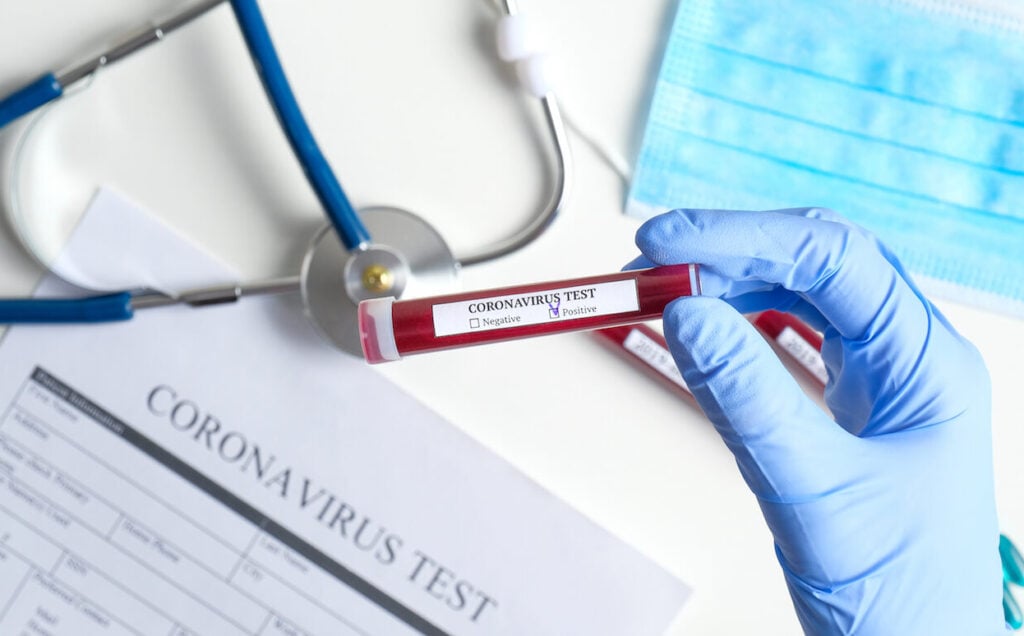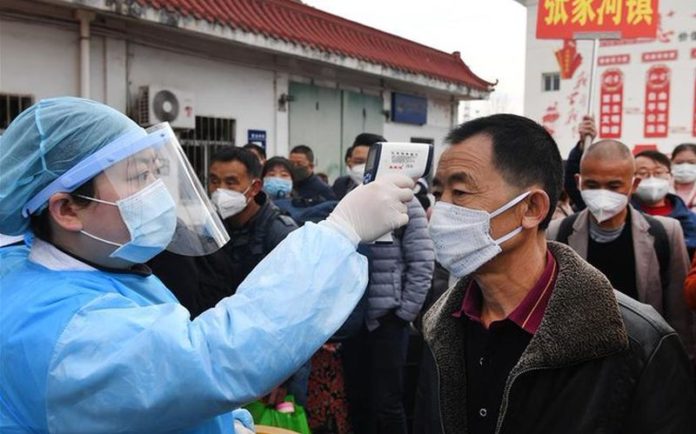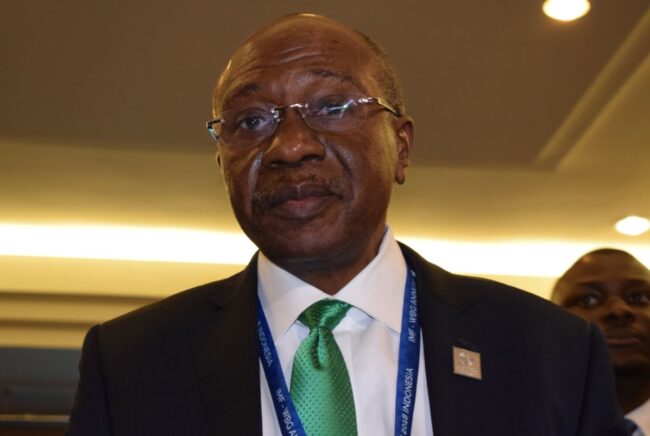Nigeria has had a long-running battle with misinformation and disinformation. In times of health pandemics, misinformation, or false information shared unintentionally, becomes especially harmful. This was evident during the Ebola crisis in Nigeria; similar dynamics are coming to play with the current coronavirus [COVID-19] pandemic.
The Centre for Democracy and Development has been tracking misinformation from when the Ebola crisis hit to the current day. The patterns that emerged have shown that Nigeria will not just have to battle COVID-19; but it will have to face a battle of misinformation, which can be similarly deadly. One such instance has materialized already: the cases of chloroquine poisoning in Lagos which stemmed from a Trump statement advocating the use of chloroquine to deal with COVID-19.
From our engagement with misinformation during the Ebola crisis, we have gleaned that misinformation narratives are wide-ranging and subject to rapid change. During the Ebola crisis, narratives ranged from bathing in salty water to eating kola nuts as a treatment for Ebola. In the case of the novel coronavirus, as the situation has developed the misinformation narratives have also changed. In early February, when Nigeria had not recorded any confirmed cases, we saw stories such as: “African blood is immune to coronavirus”, a former Nigerian president allegedly calling coronavirus a hoax, and certain food items being labeled treatments for coronavirus.
Nigeria’s institutions are weak. The country has a history of low trust in government, low social capital, elite division, and low government responsiveness. These leave the country especially vulnerable to the essential challenge coronavirus presents: optimally allocating relief during a health pandemic. The distrust in government also means that citizens are more likely to seek alternative solutions rather than look to the government to provide them. Misinformation propagates more rapidly in such an environment.
Advertisement
SOME FALSE NARRATIVES

Since the World Health Organisation has declared the COVID-19 outbreak an epidemic, it is worthy to look inwards to our context and examine the ways Nigerians confront health crises. If we look back to 2014, when the index case of Ebola was discovered, we find that the period was rife with misinformation and disinformation around health and treatment. Here we explore the false narratives that dominated the information ecosystem:
CLAIM: Bathing in warm, salty water is an effective treatment
Advertisement
This story became the most common piece of misinformation around Ebola. It was trending on pretty much all social media platforms.
CLAIM: Take your back with Dettol, salt & hot water… Ebola is now airborne
This came from a twitter user based in Lagos
CLAIM: Kola nut has been found to halt Ebola virus in its tracks in laboratory tests
Advertisement
This story was reported by the Sun who misrepresented a BBC article from 1999 that suggested kola nuts might offer a solution. The BBC article only claimed that compounds from kola nut stopped virus multiplications in the lab. There were no such results in humans.
CLAIM: Homeopathic remedies can be highly effective in epidemics
This story came from a blogger who told his readers that his homeopathic remedies could treat the Ebola virus.
THE PRESENT DAY
Advertisement

Nigeria, like the rest of the world, is facing the difficult challenge of mitigating coronavirus’ impact. Nigeria’s index case, an Italian man who arrived in Lagos on February 24 and was confirmed positive the next day, was discharged after nearly a month of treatment. As at the time of writing, Nigeria has 30 confirmed cases. Moving forward, as the virus spreads and testing intensifies, Nigeria will need to tackle health misinformation.
A challenge with misinformation is that it can come from otherwise credible sources. For example, on March 20th, U.S. President Donald Trump said that chloroquine had shown very encouraging results regarding treating coronavirus. Nigeria has since witnessed an increased demand for chloroquine, even though the U.S. Food and Drug Administration quickly clarified Trump’s statement to suggest that the drug’s effects were still being tested.
This is an overview of the most popular false stories on Coronavirus:
Advertisement
CLAIM: The former President Olusegun Obasanjo said ‘’there is no coronavirus in Nigeria, The minister of health cooks the story to defraud the Government, I want to see the Italian man, I wan get the virus too.”

The story turned out to be false as CDD fact-checkers established that the former President never made the statement. A fact check by a sister fact-checking initiative by Premium Times, Dubawa, also gave their verdict as false.
A similar claim was also attributed to the Sultan Of Sokoto Muhammadu Sa’ad Abubakar. A headline published by online blog newfenzy.com on March 7, 2020, claimed the Monarch had said “Let me say the truth and die, the Italian Coronavirus man was paid to act the drama- Sultan Of Sokoto ’’ But clicking on the link, the news failed to mention the Sultan again. This has become a trend with news bloggers since the outbreak of the virus in Wuhan China. We are seeing a trend of using essential personalities and Coronavirus to create clickbait so unsuspecting internet users can visit their website and increase their traffic.
Advertisement
PLATFORM: This story was spread on social media channels and online blogs
NARRATIVE FORM: This story was used as a means of discrediting the real threat of coronavirus.
Advertisement
STORY: WHO Coronavirus Job Scam
A WhatsApp message that has been shared extensively, especially in WhatsApp Groups in Nigeria, is offering applicants $5-$100 to work daily 2-3 hours on mobile at the World Health Organization fighting Coronavirus.
PLATFORM: WhatsApp
NARRATIVE FORM: Nigeria is currently undergoing huge levels of unemployment, especially with the youth population. This often leads to a high level of job scams where people receive messages about a job, and to get that job, they must pay a certain amount.
This story which was widely shared on WhatsApp was an attempt to exploit Nigeria’s unemployed youth for monetary gain.
CLAIM: Garlic and Pepper Soup Can Cure Coronavirus
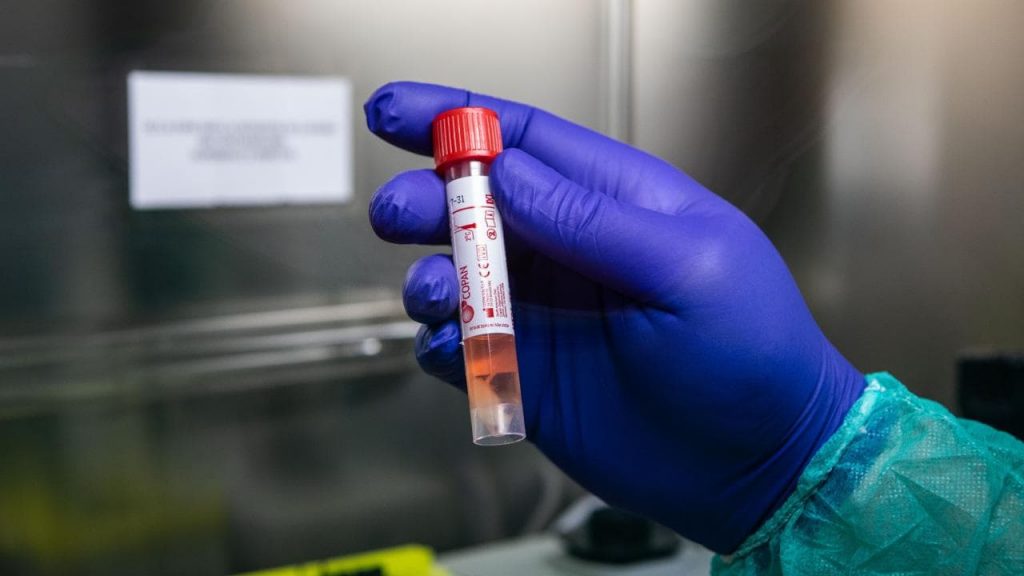
Amongst others, the list includes drinking alcohol, regular sex, saltwater, and pepper soup as Coronavirus cures. However, there is no evidence to suggest that any of these can cure Coronavirus. Experts from the World Health Organization, Nigeria’s Centre for Disease Control and leading epidemiologists around the world have maintained no treatments exist, yet.
According to the WHO’s website, ”Garlic is a healthy food that may have some antimicrobial properties. However, no evidence from the current outbreak eating garlic has protected people from the new Coronavirus.”
PLATFORM: WhatsApp and Facebook
NARRATIVE FORM: Nigerian citizens are scared away from public and private health centres due to cost. They are seeking alternatives. This story leveraged that.
CLAIM: Constant Sex Can Kill Coronavirus
A viral image stated that Constant sex kills Coronavirus.
The screenshot of a Fake CNN Newscaster with news headline has been shared widely across social media and popular messaging app WhatsApp. The image featured CNN’s, Wolf Blitzer. Instead, sex is a risk factor as such close contact with an infected person will expose the partner to the disease.
PLATFORM: Facebook, Twitter and WhatsApp
NARRATIVE FORM: This story emerged in the form of a purported cure for coronavirus.
CLAIM: African Blood is Immune to Coronavirus
On February 10, 2020, multiple sources including Abia Pulse News, Kenya Bulletin, African Daily Mail and CityScrollz published a story with the claim that the African Blood Genes are resistant to the Corona Virus. Following low reported cases of Coronavirus in Africa, multiple sources including Abia Pulse News, Kenya Bulletin, African Daily Mail and CityScrollz published stories with the claim that the African Blood Genes are resistant to the virus.
The report claimed that the Chinese doctors released one Senou, a Cameroonian student who had been infected by the virus after he was cleared and confirmed cured. A UK-based specialist in infectious diseases and epidemics, Paul Hunter, told DW that the absence of Covid-19 on the continent (in early February) might be mainly due to luck. There is nothing special about Africa not having seen a case (at the time the info went viral) other than a pure chance at the moment. Through 26 countries in 2003 but failed to gain a hold in Africa. There is no such thing as the “African blood gene”, and therefore no evidence to support the claim that ‘African Blood Gene’ has immunity to the Covid-19 (Coronavirus).
PLATFORM: Online blogs, WhatsApp
NARRATIVE FORM: In early February, before the confirmation of COVID-19 cases in Africa, many were saying that Africans could not get the virus. This was the most popular of such stories.
CLAIM: A Driver Threatened to Spread the Virus in Nigeria
On February 28, 2020, Fact Checkers at the CDD spotted a story claim that Adewale Isaac Olorogun, the man who drove the index case (Italian) confirmed with COVID-19 from the Lagos airport to Ogun state, has run away from the hospital and is threatening to spread the virus across Nigeria. The story was circulated on a cloned Facebook page AIT Nigeria News Facebook page. The post had up to 2000 shares on Facebook and also distributed via WhatsApp and other platforms.
The story is false. The alleged Uber driver whose image was used on the post released a video to debunk the claim. The man who gave his name as Igwunube Jude is from Edo state.
PLATFORM: WhatsApp, Facebook and Twitter
NARRATIVE FORM: This was a story intended to increase panic, and as well increase online traffic through the use of sensationalist content
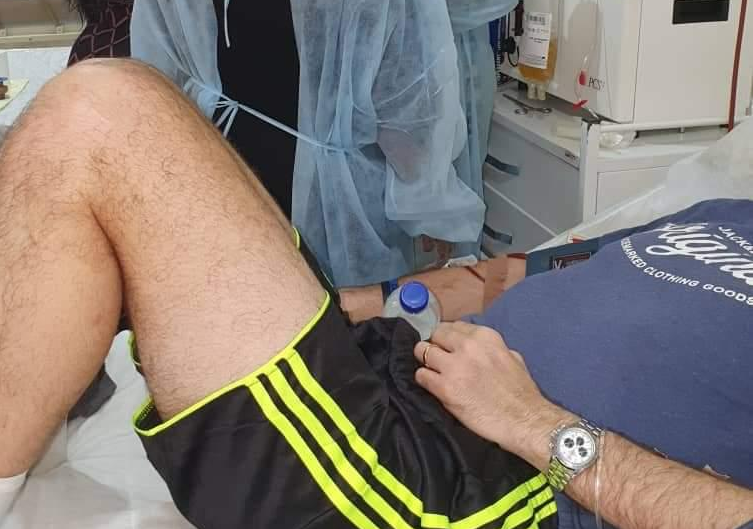
CLAIM: 9 Cases of Coronavirus were never Confirmed in Lagos State.
The headline of a news report by an online blog Fox News Nigeria claimed 9 cases of the dreaded Coronavirus were confirmed in Lagos leading to 4 deaths. The same FoxNews Nigeria had reported a day earlier on February 8 with the headline Coronavirus hit Nigeria, Outbreak of Coronavirus confirmed in Nigeria. Checks by this Fact Checker, however, reveals the story is a copy edit of a news report by Vanguard Newspaper of February 9, the same day the story was published. The First case of Coronavirus was later reported in Lagos on February 28, exactly 20 days after the blog published the false claim. As of March 17, 2020, there are only three confirmed cases.
PLATFORM: WhatsApp and Facebook
NARRATIVE FORM: Like the story above, this was a story intended to increase panic, and as well increase online traffic through the use of sensationalist content
CLAIM: On February 28, 2020, a trending WhatsApp screenshot of a tweet by @NYSC_Office circulated on the social media platform claiming that fund earmarked for the payment of February allowance of National Youth Service Corps members had to be channelled to the fight of Coronavirus in Nigeria.
CDD fact-checkers spotted the trending message signed by the director-general of the NYSC, Brigadier General Shuaibu Ibrahim.
A review of the NYSC’s official Twitter account @officialnyscng showed it was created in July 2018 with 46.1K followers while the handle peddling the misinformation was created in September 2019 with 158 followers. CDD contacted an official at the NYSC, who confirmed the screenshot as false. The NYSC statement read: “A global issue such as the Coronavirus which represents a threat to humanity should not be reduced to an object of joke…. ’’.
PLATFORM: WhatsApp and Facebook
NARRATIVE FORM: This story feeds into the narrative about the non-functional and corrupt nature of Nigerian institutions.
CLAIM: TodayNG published a report that men should shave their beards to stay safe from the disease.
The report which was widely shared on the Twitter page of Nigeria Newsdesk on February 28, was spotted by CDD fact-checkers claimed that shaving beards are part of the preventive measures against Coronavirus. Research by fact-checkers in CDD showed that shaving beards are not part of the preventive measures against Coronavirus released by the Centre for Disease Control (CDC) in the United States of America. There has not been any scientific proof that shaving beards prevent people from contracting #coronavirus as claimed by TodayNG.
PLATFORM: Online blogs, WhatsApp and Facebook
NARRATIVE FORM: This was a story used sensationalist information to drive traffic to their website.
CLAIM: US President Donald Trump claimed at a White House briefing last week that the Food and Drug Administration had approved the “very powerful” drug chloroquine to treat coronavirus.
“It’s shown very encouraging — very, very encouraging early results. And we’re going to be able to make that drug available almost immediately. And that’s where the FDA has been so great. They — they’ve gone through the approval process; it’s been approved. And they did it — they took it down from many, many months to immediate. So we’re going to be able to make that drug available by prescription or states,” Trump said.
He added: “Normally the FDA would take a long time to approve something like that, and it’s — it was approved very, very quickly and it’s now approved, by prescription.”
However, the FDA after the briefing issued a statement saying it had not approved the drug for use against Covid-19 and is still studying its effectiveness against the disease.
MESSAGING
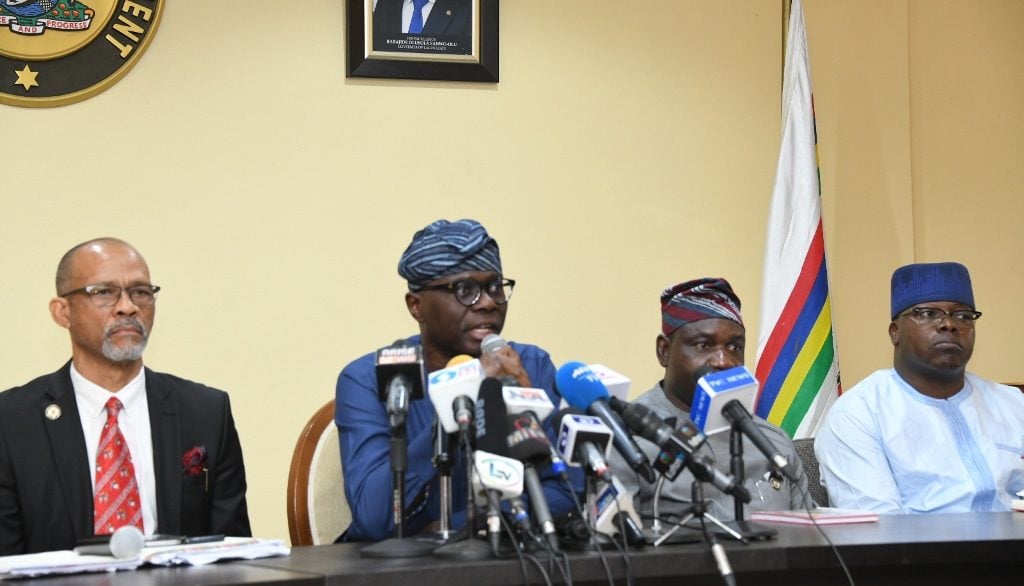
Social media in Nigeria is powerful vector. We now know that WhatsApp is used as a means of public mobilisation by political actors. The role WhatsApp now plays is ubiquitous with the Nigerian lived experience; from family groups, to workgroups, political groups, and religious groups, Nigerians are all subject to the forwarded message. This forwarded message is often framed as a ‘warning’ or a ‘public notice’, we are compelled to take these seriously, or at the very least forward it as a way of showing that you also care. Research by CDD in states such as Kano, Kogi and Bayelsa, as well as at the national level, has established that WhatsApp has now taken the role of a primary source of information for many. Interestingly, WhatsApp messages, often find their source in the popular Nigerian messaging board Nairaland, or various online blogs whose intention is simply to drive traffic to their websites.
However, the power of WhatsApp shows that it can also be used to share positive messages. CDD’s research shows that it is important to provide an alternative to the deluge of misinformation on social media platforms. Therefore WhatsApp will inform our communication strategy and will be an important component in tacking health misinformation on the current coronavirus pandemic.
The damaging effect of fake news and disinformation on public health is grave, as such we recommend the following as steps for citizens to take:
1. Always check the source of the information – only the NCDC and the Ministry of Health are the designated authorities on communications regarding COVID-19 for Nigerian citizens.
2. Think before you forward.
3. Do not self-diagnose and give advice on what someone else’s symptoms may be; if you believe someone might be at risk, encourage them to get tested.
4. Do not engage in a ‘publish first, check later’ approach.
